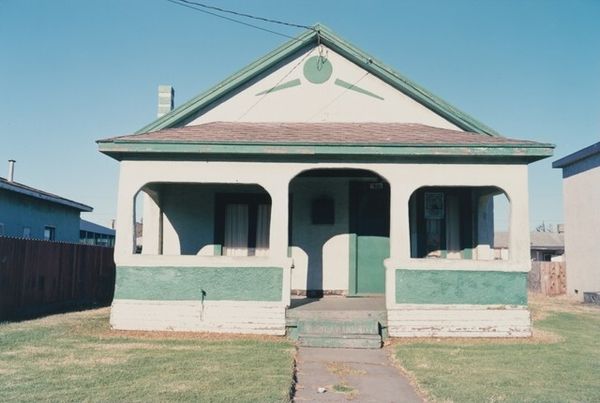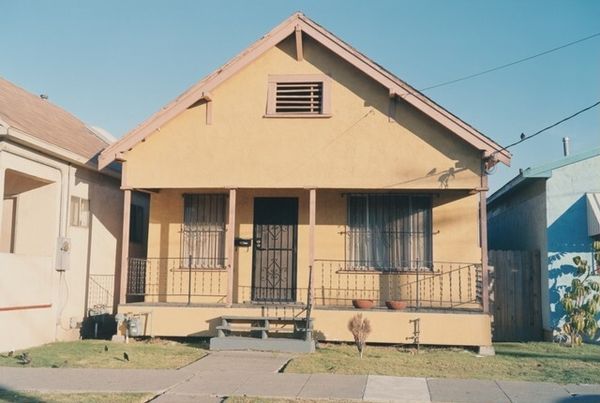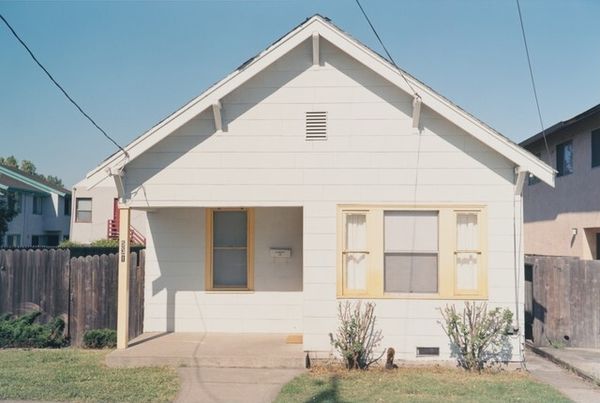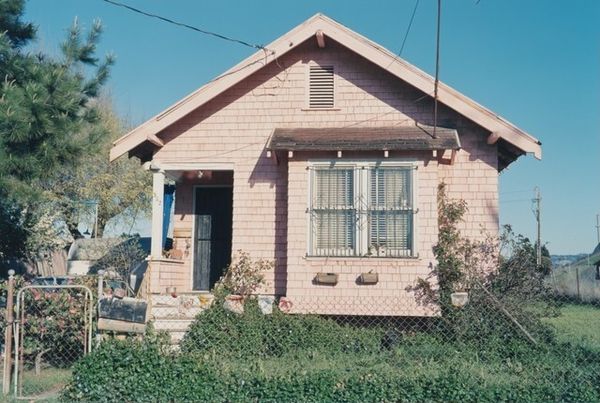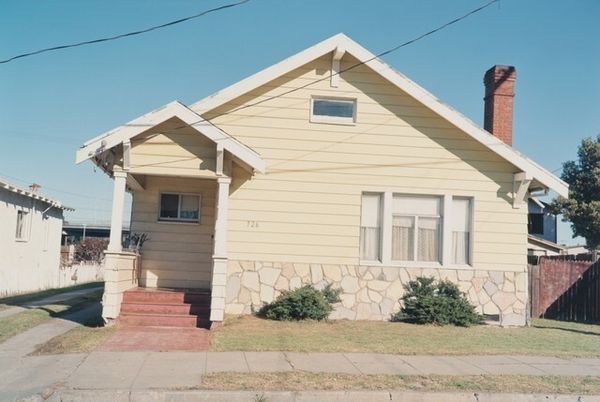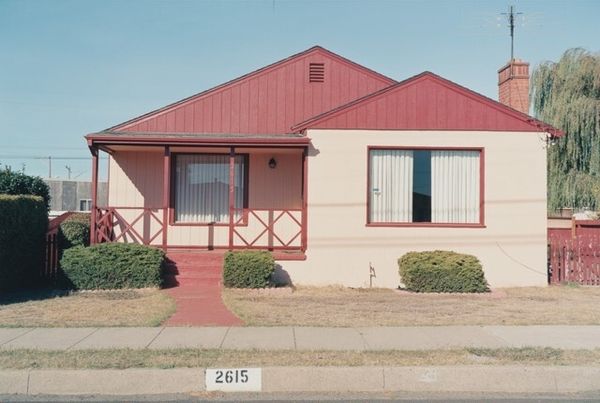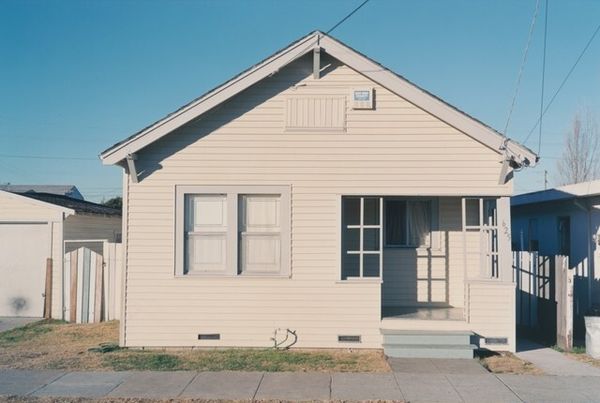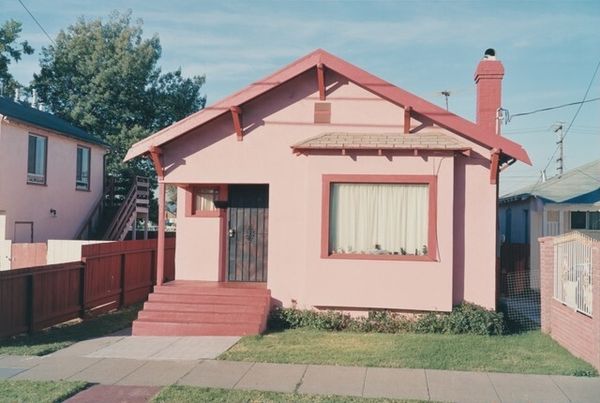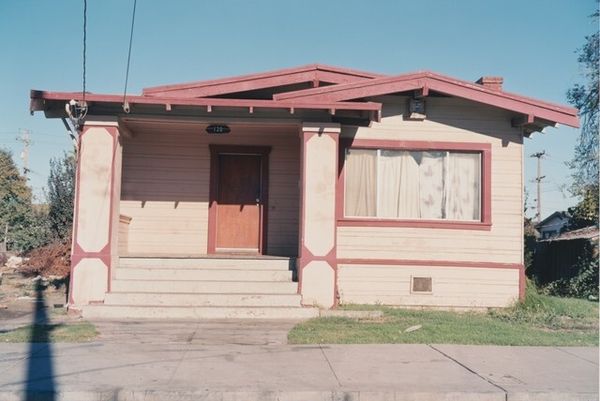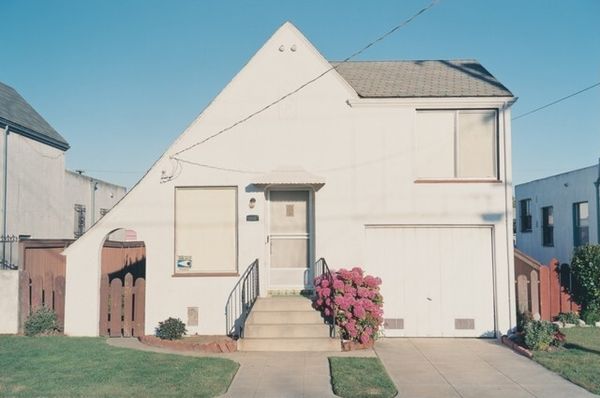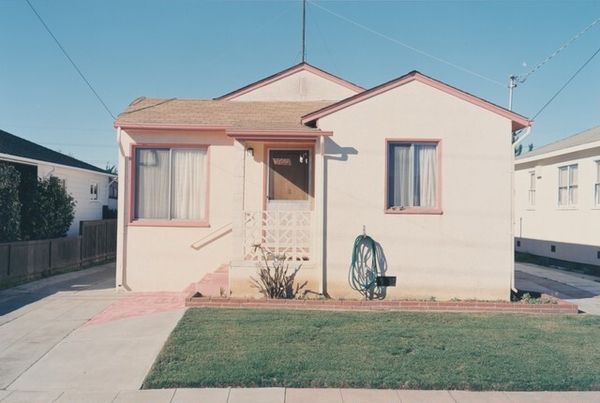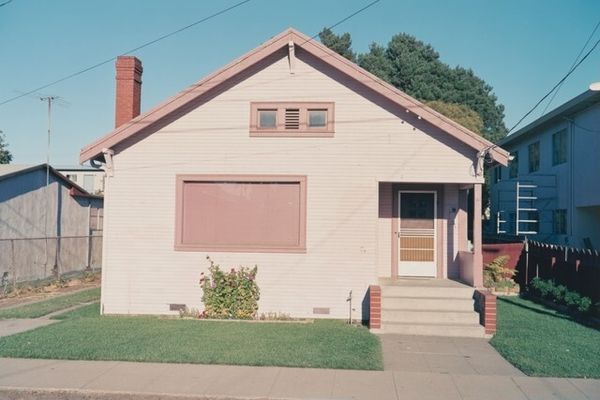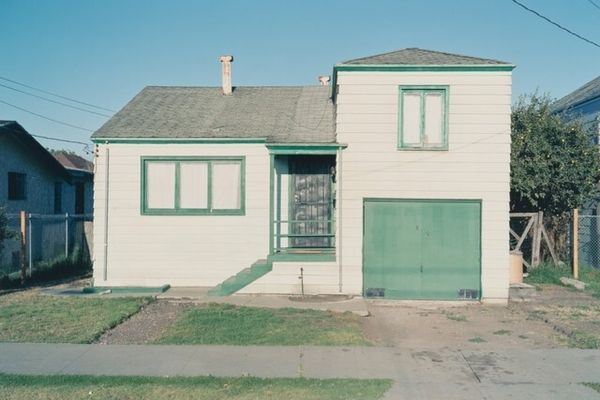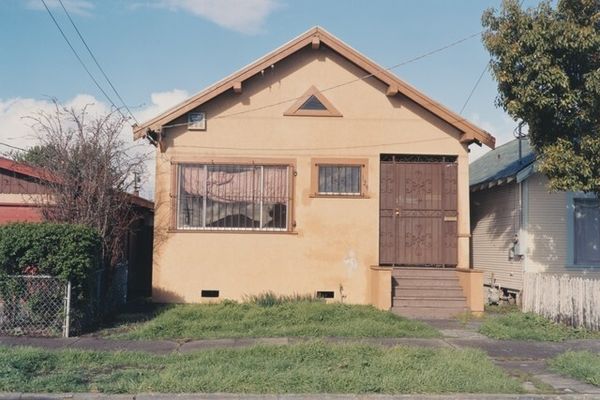
photography
#
urban landscape
#
street view
#
landscape
#
architectural photography
#
street-photography
#
photography
#
cityscape
#
realism
Dimensions: image: 15.24 × 22.86 cm (6 × 9 in.) sheet: 20.32 × 25.4 cm (8 × 10 in.)
Copyright: National Gallery of Art: CC0 1.0
Curator: Let's turn our attention to Henry Wessel’s "Real Estate #91167," taken in 1991. It’s a street view, presenting what appears to be a rather ordinary house. Editor: It’s a surprisingly sterile image, isn’t it? The starkness of the façade and that strangely lifeless lawn create an unsettling mood despite its banality. Curator: Wessel's work often plays with the mundane. This house, for instance, it’s likely stucco, given its location, maybe even a dyed stucco, since there are some blue tones; he uses photography here almost as an indexical tool of the materials present in the Californian landscape, devoid of human activity. He seemed more interested in presenting the material reality of these places than trying to evoke specific emotional responses, you know? Editor: But doesn't that stark presentation *become* the emotional response? The architecture itself is charged, no? Note the prominence given to the window and doorway - potent symbols of access and prospect. A classical dichotomy, between the internal, intimate, private space, and the external world of display, exchange. Even the red paint on the steps evokes, maybe misleadingly, the red carpet rolled out for dignitaries? Is that to overreach? Curator: Maybe a little! Though, I think your reading of access aligns nicely with his fascination with vernacular architecture, as his photographs show everyday construction as a cultural product shaped by consumerism. In the grand scheme of things, all construction material ends up defining living space as a purchasable unit. Editor: Which returns me to the artwork’s title! What would otherwise appear as an indifferent depiction is infused with an eerie connotation, now framed within an economic understanding. A street view of "Real Estate". Is it to denounce something, or just depict? Curator: It's about laying bare the process through which places gain value as sellable objects rather than intimate living spaces. What do these homeownership dreams signify? And who gets to live them? Editor: Yes, very good questions! This recontextualizes the vernacular into a meditation about socioeconomic factors. And with that I’ll remember Wessel, depicting the strangeness that lives behind that ideal! Curator: Precisely. It reveals how capitalist drives impact place identity. Well, that definitely reshaped my interpretation. Thank you.
Comments
No comments
Be the first to comment and join the conversation on the ultimate creative platform.
